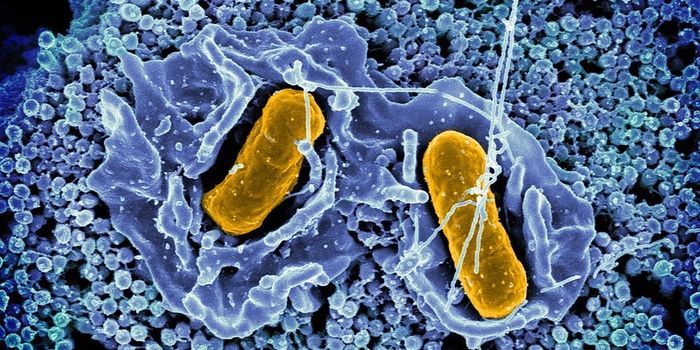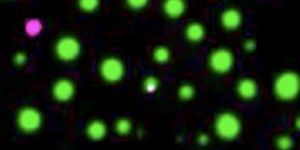Gene Mutation Associated with Intellectual Dysfunction ID'ed
Researchers led by Assistant Professor Gholson Lyon at Cold Spring Harbor Laboratory (CSHL) have revealed a previously unknown genetic mutation that is correlated with a variety of disorders including developmental delay, autism spectrum disorder, intellectual disabilities, congenital cardiac anomalies and abnormal facial features. The mutation is related to one which underlies Ogden syndrome, a severe disease that can run in families and includes many of those symptoms. The study is described in the video.
Lyon and colleagues discovered Ogden syndrome, finding it in two generations of a family with five affected boys. All of the affected individuals died by the age of three. Ogden syndrome is an X-linked condition - only affecting males - and is caused by an error in the NAA10 gene.
Since then, Lyon and his team have been gathering data on people that carry mutations in another related gene, NAA15. That gene codes for a protein that functions in the cell along with the NAA10 protein to modify other proteins, in a mechanism termed NatA-mediated N-terminal acetylation.
While working with clinical geneticist Wendy Chung at Columbia University, Lyon was introduced to a case in which a boy carried a mutation in NAA15; the boy had a variety of problems including developmental delays, intellectual disability, and congenital heart defects.
The researchers have gone on to get referrals from clinics around the globe, identifying 37 people in 32 families that harbor mutations in the NAA15 gene. The NAA15 gene is not on the X chromosome, so the group includes people of both sexes.
“Trying to prove the relevance of any mutation in a gene requires a large number of samples,” Lyon said. “As a result, we’re seeing the field of human genetics move more toward this type of large-scale collaboration.”
This research could hold promise for the future, he suggested. “As the price of genetic sequencing drops and more people are sequenced, we may be able to provide individuals with such mutations with more education and services in early life which could lead to better overall functioning.”
Lyon added that there are many rare mutations like NAA15, which cause disease and are awaiting discovery. “Instead of lumping many diseases together under very broad categories like ‘intellectual disability’ or ‘autism,’ the human genetics community is now splitting these into much finer entities so that we can begin to do natural history studies, much like what has been done with Fragile X syndrome,” he explained. An example is the progression of our understanding of Fragile X, after extensive analysis of FMRP gene mutations that have been linked to that disease.
Sources: CSHL









